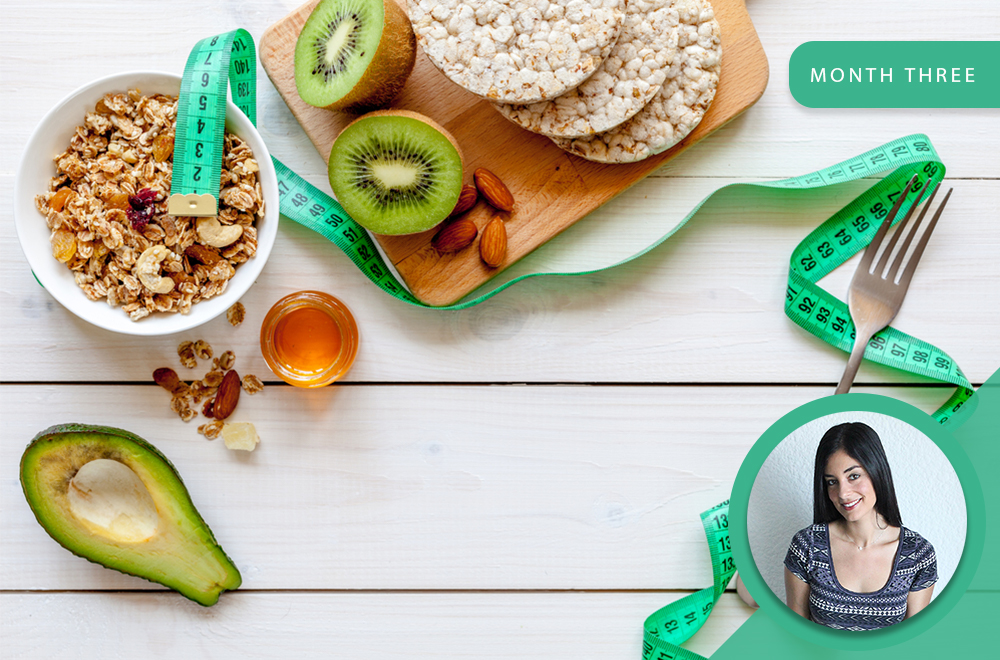
13 Jul Pregnancy: Month 3: What Our Dietitian Has To Say
Now that you’ve reached the 3rd month of your pregnancy, you may find that you are starting to gain weight, even if you don’t have a baby bump just yet. So how much weight should you be gaining? Healthy weight gain during pregnancy is essential to ensuring a healthy baby. Women who are underweight during pregnancy have increased risk of early labour and preterm births, babies being born at a low weight and generally increases the risk of poorer pregnancy outcomes. On the other hand, being excessively overweight during pregnancy can put you at risk of pregnancy-related complications, such as gestational diabetes and pre-eclampsia. Excessive weight gain during pregnancy has also been shown to increase the risk of obesity for your baby later on in life. Gaining just the right amount of weight during pregnancy is a great way to ensure that you have a healthy pregnancy and that your baby has the best start to life.
If you are a healthy weight before your pregnancy, you should aim to gain 10-15kg’s through the course of your pregnancy. However, most of this weight gain will occur in the second and third trimesters. If you are underweight before your pregnancy or are carrying multiples you will need to gain more weight. The recommended weight gain consists of the weight of the baby (around 3.5kg’s), the weight of the placenta and extra blood and tissues (around 4-5kg’s) and about 3-7kg’s of extra fat to allow for some reserves after birth.
For the first trimester, it is recommended that you gain 1-2kg’s of weight. You will only need about 100 calories per day extra during the first trimester, which is equal to eating an extra slice of bread or a banana. However, you will need a lot more protein, iron and nutrients so you will need to make sure that the calories you do eat are rich in these nutrients.
MY TOP TIPS FOR MANAGING WEIGHT GAIN DURING PREGNANCY:
- Weigh yourself weekly to check that you are gaining the right amount of weight (about 500g/ week from the 2nd trimester onward) and adjust your food intake accordingly.
- Make sure to eat foods that are rich in protein and nutrients but not too high in calories. Fruits, vegetables, whole-grains, legumes and lean meats are good choices. Try this delicious Mexican black bean pasta salad. Being legume-based means that it is packed with protein, iron and antioxidants.



No Comments